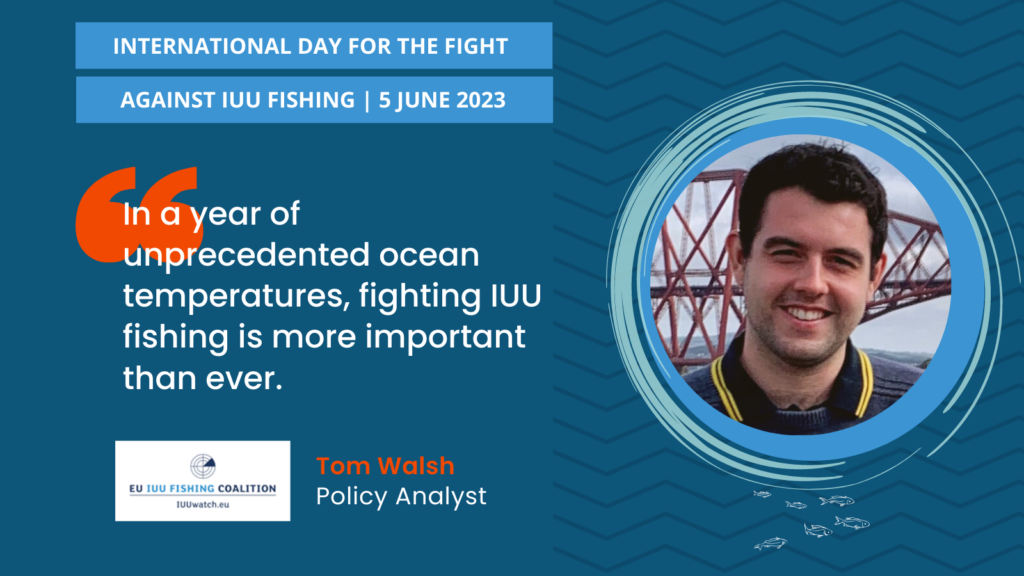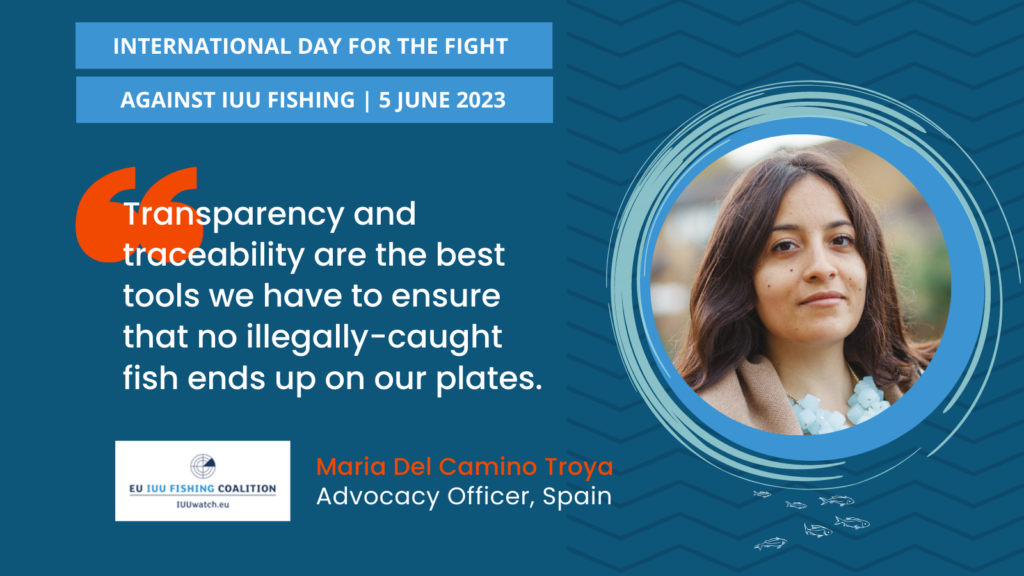The United Nations estimates that up to 1 in every 5 fish caught comes from illegal, unreported and unregulated (IUU) fishing. ‘Illegal’ means it breaks existing fishing laws, such as catching species a vessel doesn’t have permission to catch, or using banned fishing techniques. ‘Unreported’ refers to intentionally hiding catch from authorities, and ‘unregulated’ is fishing activities in areas not covered by legal frameworks, particularly on the high seas. IUU fishing is big business, worth billions of dollars every year, and it’s closely linked to horrific crew abuses and extensive killing of threatened wildlife.
All this means that if we want a safe, sustainable ocean, we need to end IUU fishing. Since 2013, the EU IUU Coalition – made up of the Environmental Justice Foundation, Oceana, The Nature Conservancy, The Pew Charitable Trusts, and WWF – has worked to achieve this. The Coalition pushes for strong EU leadership to improve transparency, ensure the ocean is better governed, and bring global fisheries out of the shadows.
Today, on the International Day for the Fight Against IUU Fishing, our chief campaigner in Spain, Maria Del Camino Troya, and policy expert, Tom Walsh, explain what has been achieved so far and what still needs to happen to bring an end to IUU fishing for good.
Why IUU fishing matters: Tom Walsh

Why is it important to fight against IUU fishing?
Tom: “Climate change and an ever-increasing demand for seafood pose grave risks to marine ecosystems around the world. Some fishers are resorting to IUU fishing in the face of dwindling fish populations. There is a vicious cycle with the climate crisis – fish are migrating as a result of the warming ocean, and the ecosystem destruction caused by IUU fishing is accelerating this heating. IUU fishing is multifaceted, affecting wildlife and habitats but also food security for millions of people. It makes it impossible to maintain fish stocks at sustainable levels and undermines the livelihoods of legal fishers and coastal communities.”
Can you tell us more about the latest report published by the EU IUU Fishing Coalition?
Tom: “Water-tight?, the Coalition’s study on the implementation of EU import controls at national level, revealed that import controls are not consistently implemented across EU Member States, opening the door to IUU fishing products entering the EU market. This means that European and national authorities are inadvertently supporting these illicit activities, which are often linked to labour abuses.
Improved and harmonised implementation of the rules across all national authorities is essential. To achieve this, the European Commission launched the CATCH IT system, which aims at digitising the EU catch certification scheme. Following last week’s highly anticipated agreement on new EU fisheries control rules, use of this IT system will become mandatory for EU Member States in a couple of years. This is an important step in the right direction. I urge the EU institutions to approve this agreement, and Member States to implement it rapidly and efficiently.”
National action to tackle global IUU fishing: the view from Spain

What can States do to tackle IUU fishing?
Maria: “We need to make sure the fish we eat is traceable. One key tool for this is catch documentation schemes: a set of documents which tracks seafood as it moves through the supply chain from fishing grounds to markets. They are essentially import certificates allowing authorities to trace where the fish comes from and ensure it has been caught legally, with digitisation an essential part of the process. The challenge for States is to make sure that they have similar processes which allow them to share and compare information. Consistency across countries can help stop unscrupulous operators shopping around to get their IUU products into the country with the weakest system.”
What role can Spain play in the fight against IUU fishing?
Maria: “Spain is one of the main seafood traders in the EU with trade worth 1.5 billion euros in 2020, equivalent to 787.257 tonnes. This means it has a significant role to play in ensuring that the products of IUU fishing don’t make it onto European supermarket shelves. This importance appears to have been recognised. Spain is one of only eight countries in the world to have ratified three key pieces of fisheries legislation. They are the FAO Port State Measures Agreement, which covers legality of catch, the ILO C188 Work in Fishing Convention, which ensures a basic minimum standard for working conditions on fishing vessels, and the IMO Cape Town Agreement, looking at ensuring vessel safety. Spain has also made a lot of progress to improve national legislation translating EU and international obligations into national law. While there is still more to do, States in the EU and worldwide could learn from Spain’s best practices on import controls and national implementation of legislation tackling IUU fishing.”
